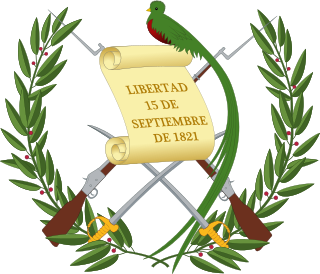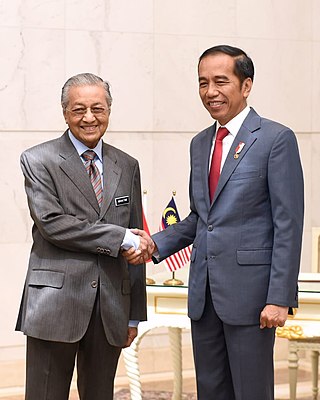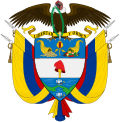Colombia seeks diplomatic and commercial relations with all countries, regardless of their ideologies or political or economic systems. For this reason, the Colombian economy is quite open, relying on international trade and following guidelines given by international law.

Guatemala's major diplomatic interests are regional security and increasingly, regional development and economic integration.

Since independence, Indonesian foreign relations have adhered to a "free and active" foreign policy, seeking to play a role in regional affairs commensurate with its size and location but avoiding involvement in conflicts among major powers. During the Presidency of Sukarno, Indonesia's Foreign Relations were marked by engagement with other newly independent nations in Asia and Africa, as exemplified by the Bandung Conference, the subsequent foundation of the Non-Aligned Movement and a confrontational attitude towards Western powers, justified by a belief in the CONEFO and opposition to what Sukarno termed as NEKOLIM.

This article deals with the diplomatic affairs, foreign policy and international relations of Uruguay. At the political level, these matters are officially handled by the Ministry of Foreign Relations, also known as Cancillería, which answers to the President.

The foreign relations of the Sahrawi Arab Democratic Republic (SADR) are conducted by the Polisario Front, which maintains a network of representation offices and embassies in foreign countries.

The foreign relations of the Islamic Republic of Mauritania have, since 1960, been dominated by the issues of the Spanish Sahara and the recognition of its independence by its neighbours, particularly Morocco. Mauritania's foreign relations are handled by the Minister for Foreign Affairs and Cooperation, who is currently Mohamed Salem Ould Merzoug.

Indo-Colombian relations are the diplomatic relations between the Republic of Colombia and the Republic of India. Both countries established diplomatic ties on January 19, 1960. Colombia is currently the commercial point of entry into Latin America for Indian companies.

Diplomatic relations exist between the Republic of Austria and the Republic of Colombia. Both nations are members of the OECD and the United Nations.
Leopoldo Borda Roldán (1898–1977) was a Colombian engineer and career diplomat who served as the 1st Ambassador of Colombia to India. Prior to this inaugural post, he also served as Ambassador of Colombia to Bolivia and held other administrative posts in the foreign service including serving as the 7th Consul General of Colombia in Paris, and served as Chargé d'Affaires for the Colombian missions in Japan, Sweden, and Norway.
Carlos Ignacio Urrea Arbeláez is the 10th and current Ambassador of Colombia to China. Before his diplomatic appointment he served in the private sector as President of Leonisa.

The Embassy of Colombia in London is the diplomatic mission of the Republic of Colombia in the United Kingdom. It is headed by the Ambassador of Colombia to the United Kingdom. It is located in the Knightsbridge district in a building it shares with the Embassy of Ecuador, near Harrods, Hyde Park, and Hans Place, precisely at 3 Hans Crescent at the intersection of Basil Street, and it is serviced by Knightsbridge station.
The Taipei Commercial Office in Bogotá, Colombia represents the interests of Taiwan in Colombia in the absence of formal diplomatic relations, functioning as a de facto embassy.











